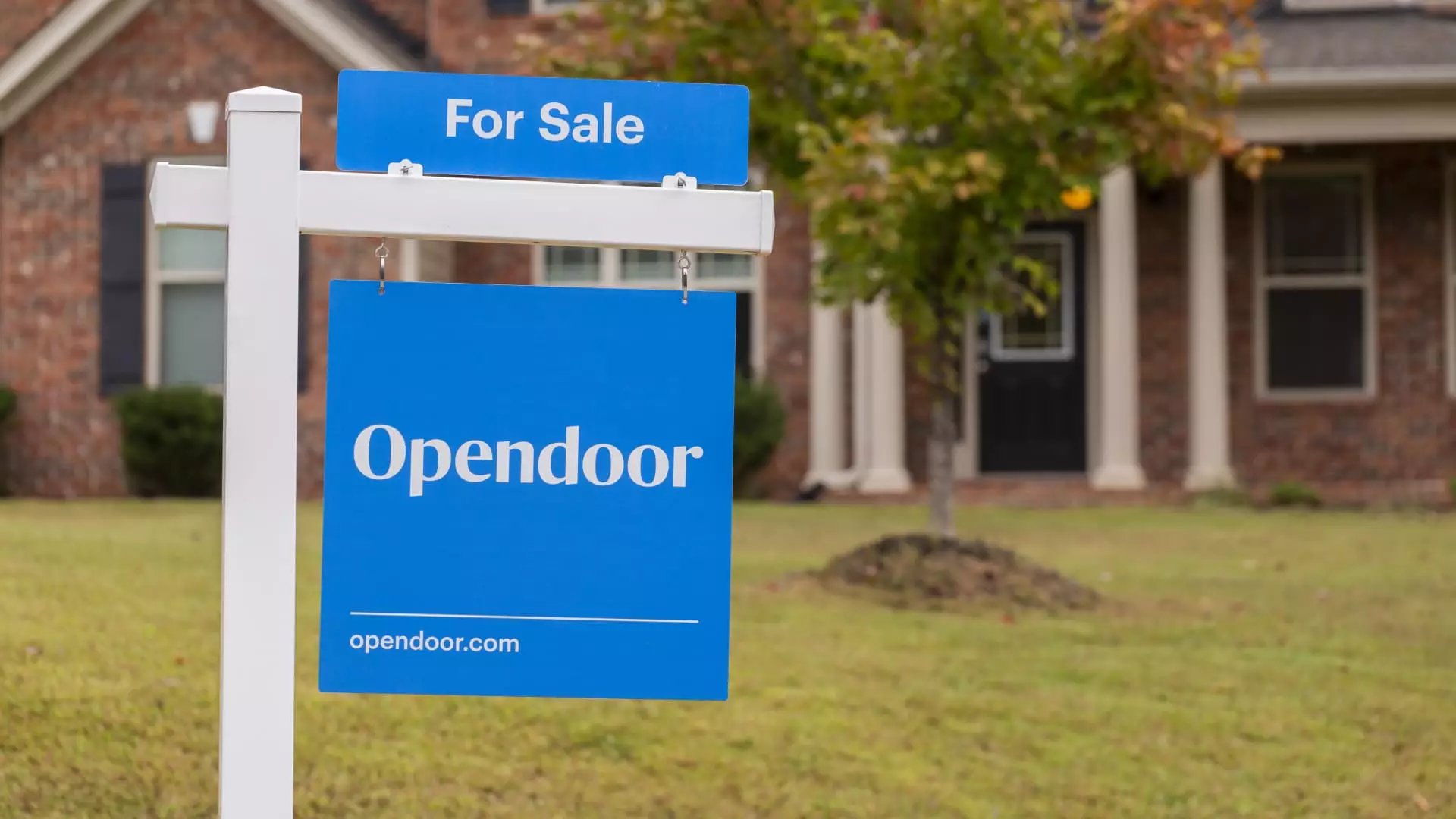Opendoor’s recent rally may appear promising with a 10% spike following the CEO’s resignation, but beneath this surface lies a shaky core that reveals more than it conceals. Once lauded as a pioneer in transforming real estate transactions through technology, Opendoor has become emblematic of the risks inherent in speculative growth strategies that lack sustainable fundamentals. Its rollercoaster valuation, plummeting from a peak to a nadir of less than a dollar, underscores a business caught between technological innovation and economic reality. What’s often overlooked is that during the pandemic boom, hype and low interest rates masked many underlying issues. Now, as the economic climate shifts—marked by rising interest rates and inflation—the company’s fragile profitability is exposed, highlighting the fallacy of over-reliance on market sentiment and speculative backing.
Leadership Turmoil as a Symptom of Deeper Flaws
Carrie Wheeler’s resignation, heralded as a move towards stability, is more a symptom of the company’s ongoing crisis than a remedy. Her tenure was marred by investor jitters rooted in the company’s inability to demonstrate a convincing path to profitability. The recent earnings report, which projected declining acquisitions and reduced marketing spending, paints a bleak picture of a shrinking business struggling to find footholds in an increasingly hostile financial environment. The choice of an interim leader signals uncertainty, not strength, revealing that Opendoor’s leadership vacuum threatens its potential to recover. The criticism from prominent insiders, including Co-Founder Keith Rabois, underscores a problematic disconnect between executive leadership and foundational vision—casting doubt on whether new management can truly steer the company away from its precarious precipice.
Market Hype versus Reality: The Illusion of a Turnaround
The dramatic stock increase, bolstered by hedge fund managers and stock market agitators, epitomizes the perilous allure of “get-rich-quick” narratives. Eric Jackson’s bold predictions of a “100-bagger” and calls to “start thinking big again” are inspiring for speculative investors craving overnight success, but they lack grounding in the company’s actual economic health. This kind of hype feeds a dangerous cycle—where market momentum outweighs fundamentals—almost inviting a repeat of the dot-com bubble scenario. Investors, especially retail participants seduced by quick gains, risk ignoring the stark reality that Opendoor’s business model—buying and selling homes with borrowed money—is inherently vulnerable to interest rate swings and housing market fluctuations. The recent resurgence does little to change the fact that Opendoor remains a cautionary tale about overleveraging and the peril of betting on unrealized growth.
Reimagining the Future Amidst Reckoning
While the new leadership—Shri Radhakrishna stepping in as interim CEO—may bring technical expertise to the table, it is unlikely to resolve the core issues that have plagued the company since its IPO via SPAC. The market’s excitement is misplaced if it ignores the fundamental financial instability and the structural challenges posed by the real estate market’s cyclical nature. Promising innovations are meaningless if they do not translate into tangible, profitable operations. The industry needs a sober reevaluation of expectations; betting on Opendoor’s turnaround is akin to placing faith in a house built on shifting sands. Regulatory challenges, mounting debt, and an overinflated valuation make it difficult to see genuine growth in the near horizon, regardless of management’s reorganization efforts.
Opendoor’s latest rally appears more like a mirage fueled by sentiment and speculation rather than a sign of genuine revival. The company’s prospects depend not on charismatic leadership or fleeting market hype but on substantive financial restructuring and strategic focus—an area in which it has so far fallen significantly short.

